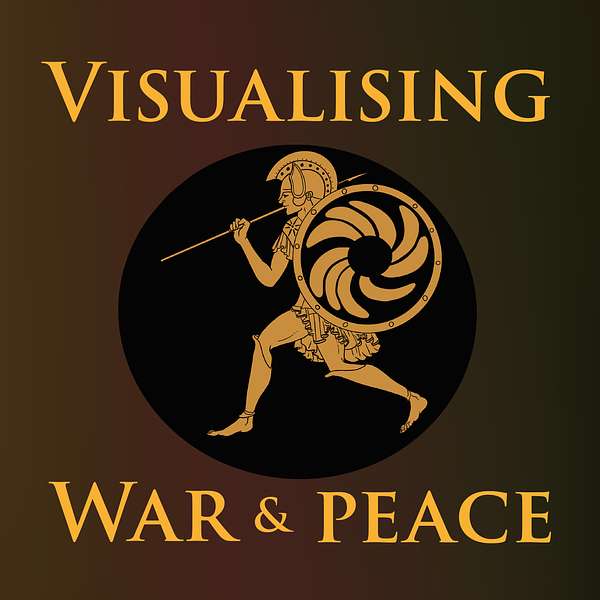
Visualising War and Peace
How do war stories work? And what do they do to us? Join University of St Andrews historian Alice König and colleagues as they explore how war and peace get presented in art, text, film and music. With the help of expert guests, they unpick conflict stories from all sorts of different periods and places. And they ask how the tales we tell and the pictures we paint of peace and war influence us as individuals and shape the societies we live in.
Visualising War and Peace
Visualising War on Film with David LaRocca
In this week's episode, Alice interviews Dr David LaRocca, a philosopher by training but also an author and expert on cinema. Among other publications, he has edited volumes on the Philosophy of Documentary Film and on the Philosophy of War Films. In his book Metacinema: the form and content of filmic reference and reflexivity he discusses the self-conscious representation of different kinds of violence and conflict in film; and his recent research has paid particular attention to the affective elements of war films, as well as wrestling with big questions like ‘what is a war film?’ and ‘what are war films for?’
In his introduction to The Philosophy of War Films, David wrote: ‘it is largely through the camera, both through its lens and by means of cinematic form, that what many of us know about war is known, especially what we know visually and sonically…’ In the podcast, we discuss how films mediate our understanding of many aspects of war, and the very complex relationship between narrative and reality. David discusses changing trends in the cinematic representation of war, particularly as they have been affected by advances in technology. We reflect on the economics of the film industry and its implications for diversity and homogeneity of representation, and we also talk about the ways in which specific, real-life conflicts have driven developments in cinema.
David has fascinating things to say about why we watch war films, not just once but often, on repeat. He explains the concept of the 'humanistic sublime': the vicarious experience of extreme peril without real, bodily-danger. We talk about how 'narratively satisfying' stories of conflict often are, in contrast to some narratives of conflict resolution and peace-building. And we discuss the immersive, emotive qualities of (e.g.) slow cinema relative to high-speed processing of rapid changes of scene.
David also gets us thinking about differences between dystopian and utopian representations of war and peace on the big screen. Along the way, we touch on a huge variety of trends in cinema, from documentary to anime, superhero movies to parody. As David points out, many films show self-awareness of the ways in which they influence and rework others, canonising some iconic images of war but also inviting us to question habits of representation.
We hope you enjoy the episode. For a version of our podcast with close captions, please use this link. For more information about individuals and their projects, please visit the University of St Andrews Visualising War website.
Music composed by Jonathan Young
Sound mixing by Zofia Guertin